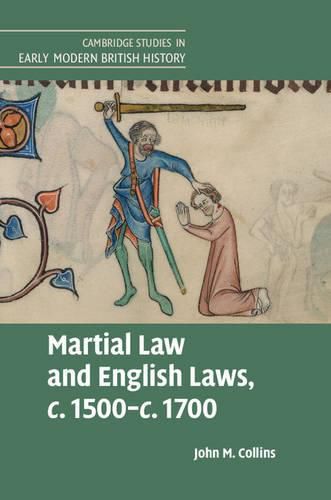Readings Newsletter
Become a Readings Member to make your shopping experience even easier.
Sign in or sign up for free!
You’re not far away from qualifying for FREE standard shipping within Australia
You’ve qualified for FREE standard shipping within Australia
The cart is loading…






John M. Collins presents the first comprehensive history of martial law in the early modern period. He argues that rather than being a state of exception from law, martial law was understood and practiced as one of the King’s laws. Further, it was a vital component of both England’s domestic and imperial legal order. It was used to quell rebellions during the Reformation, to subdue Ireland, to regulate English plantations like Jamestown, to punish spies and traitors in the English Civil War, and to build forts on Jamaica. Through outlining the history of martial law, Collins reinterprets English legal culture as dynamic, politicized, and creative, where jurists were inspired by past practices to generate new law rather than being restrained by it. This work asks that legal history once again be re-integrated into the cultural and political histories of early modern England and its empire.
$9.00 standard shipping within Australia
FREE standard shipping within Australia for orders over $100.00
Express & International shipping calculated at checkout
John M. Collins presents the first comprehensive history of martial law in the early modern period. He argues that rather than being a state of exception from law, martial law was understood and practiced as one of the King’s laws. Further, it was a vital component of both England’s domestic and imperial legal order. It was used to quell rebellions during the Reformation, to subdue Ireland, to regulate English plantations like Jamestown, to punish spies and traitors in the English Civil War, and to build forts on Jamaica. Through outlining the history of martial law, Collins reinterprets English legal culture as dynamic, politicized, and creative, where jurists were inspired by past practices to generate new law rather than being restrained by it. This work asks that legal history once again be re-integrated into the cultural and political histories of early modern England and its empire.